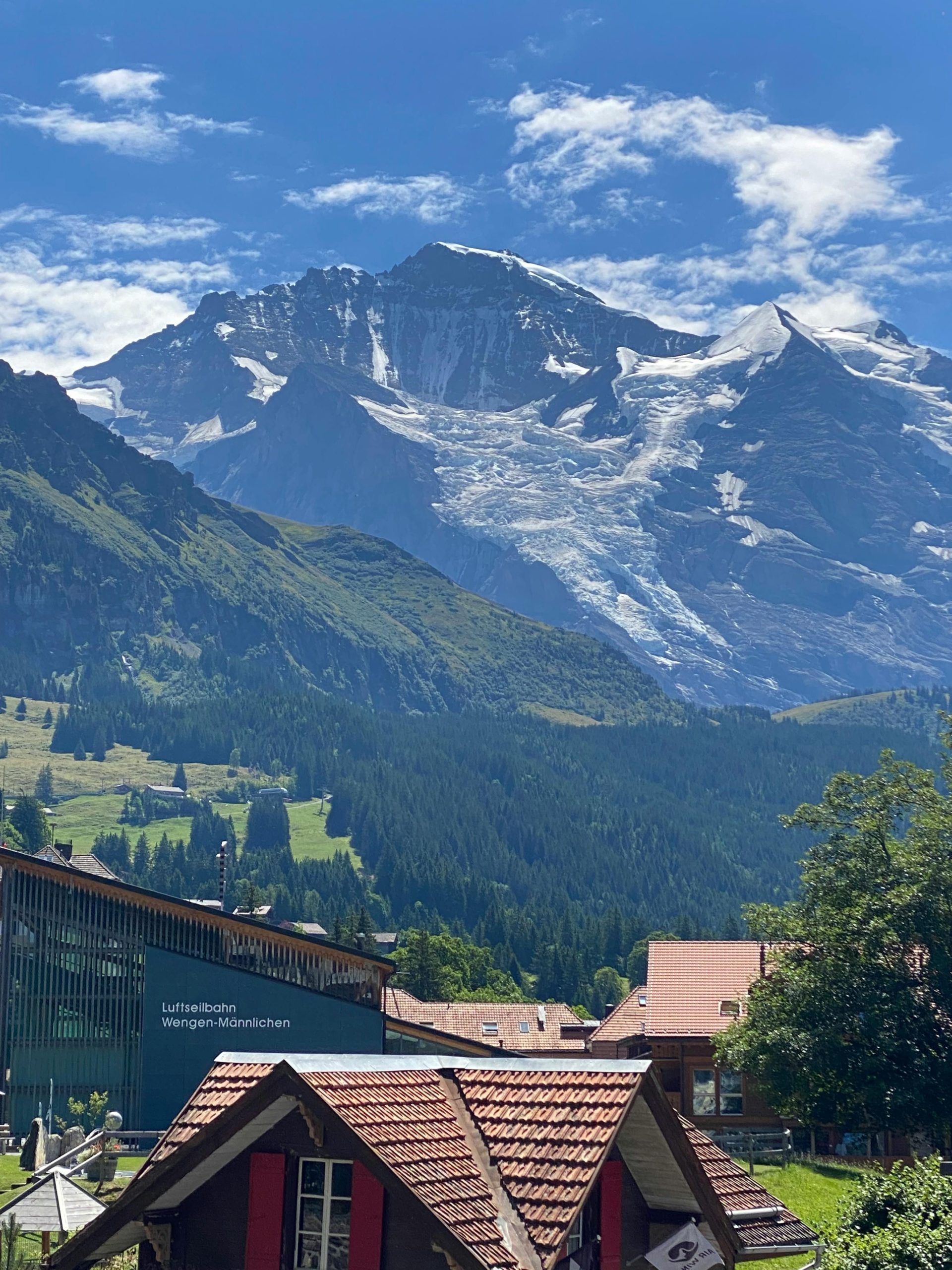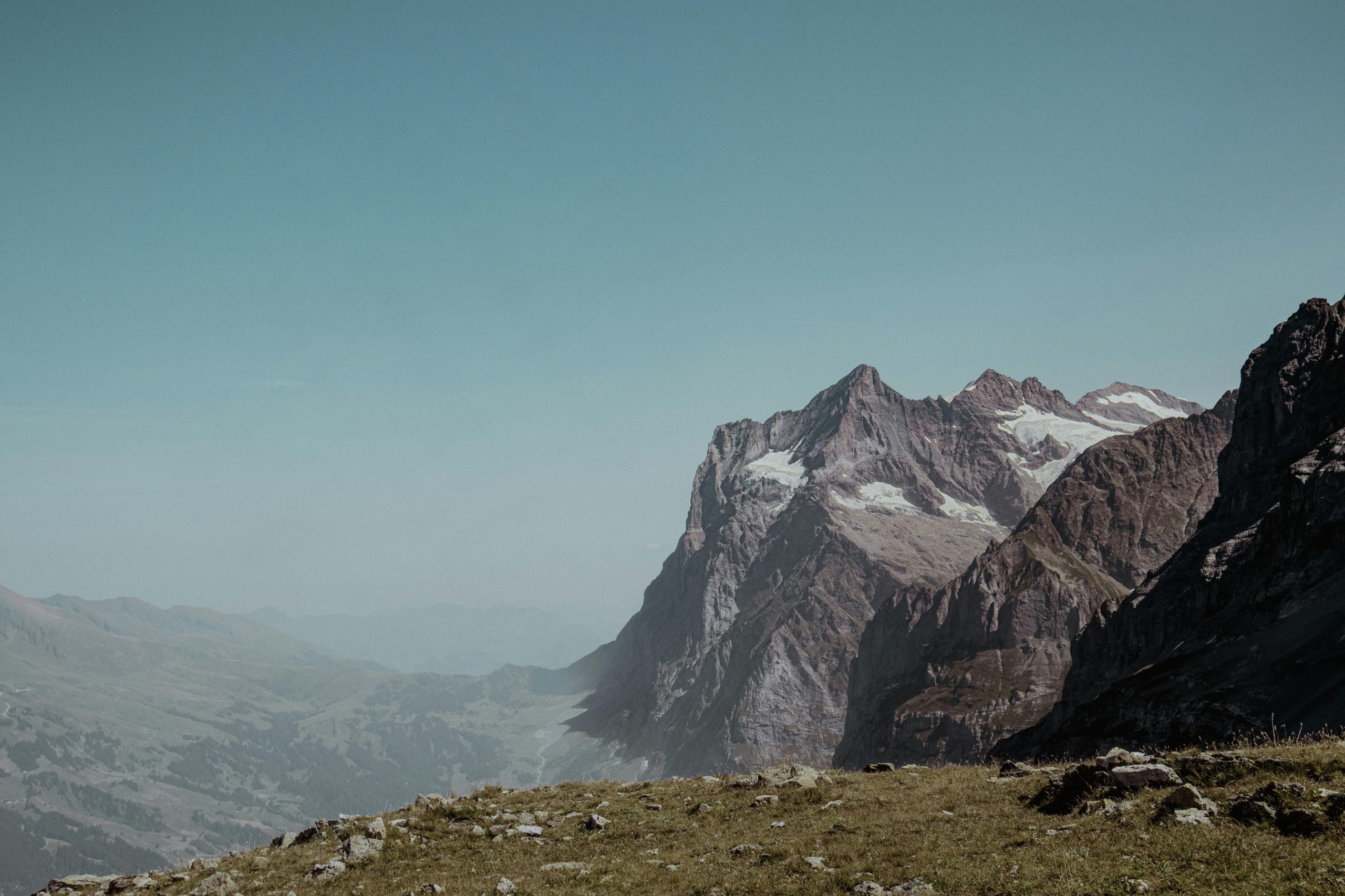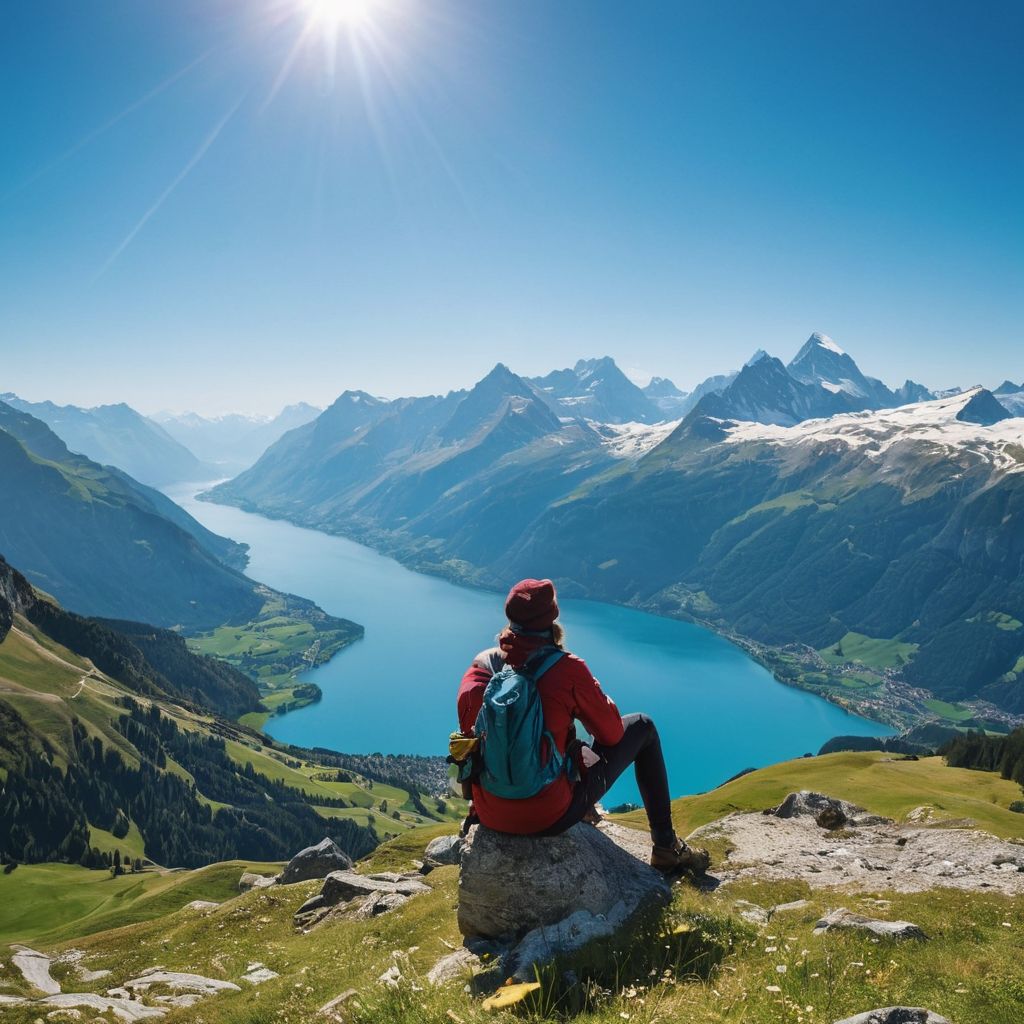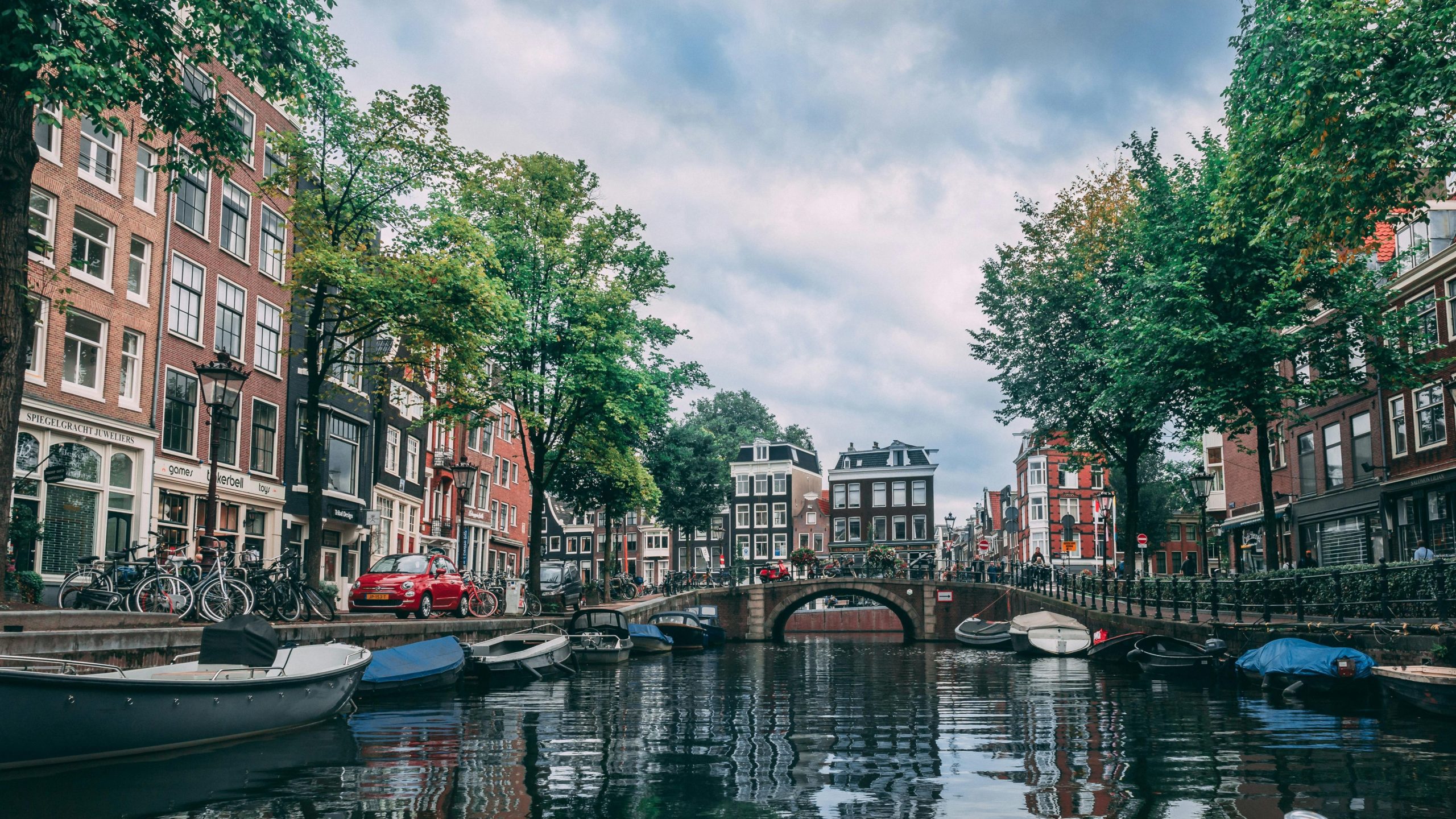Dreaming of the majestic Alps and serene lakes of Switzerland?
Planning a trip to this picturesque country can often feel overwhelming with its myriad of options and details to consider.
From selecting the perfect destinations like Zurich, Lucerne, and Geneva to optimizing your itinerary with expert tools like RoutePerfect’s AI, planning your Swiss adventure can be both seamless and enjoyable.
Our comprehensive guide will walk you through everything from understanding Swiss customs and culture, to navigating visa requirements, choosing the best travel times, and crafting the perfect itinerary to make your Swiss journey unforgettable.
Key Facts to Know Before You Plan a Trip to Switzerland

Switzerland, a land of pristine landscapes and meticulous precision, is more than just a tourist destination; it’s a unique blend of four main linguistic and cultural regions: German, French, Italian, and Romansh. This diversity not only enriches the country’s cultural fabric but also influences its social customs, culinary styles, and daily life. Understanding these key facts is essential as they shape the experiences and interactions you will have during your Switzerland trip.
The Swiss Confederation, established on August 1, 1291, celebrates this day as its National Holiday. The country is renowned for its robust public transport network, high-quality life, and breathtaking natural beauty, from the majestic Alps to serene lakes. For anyone planning a Switzerland travel adventure, appreciating these aspects will enhance your understanding and enjoyment of this diverse country.
Understanding Swiss Customs
Swiss customs are deeply rooted in values of punctuality, cleanliness, and respect for nature, reflecting the country’s high standard of living. When traveling in Switzerland, it’s important to be aware of these customs to show respect and fit in with the local community. For instance, greeting someone with a simple “Grüezi” or “Bonjour” depending on the region, being punctual, and adhering to quiet hours are all practices that will help you merge seamlessly into Swiss society and enrich your travel experience.
Exploring the Rich Culture of Switzerland

The rich culture of Switzerland is a vivid tapestry woven with traditions from its German, French, Italian, and Romansh-speaking regions. This cultural diversity is manifested in various forms such as music, art, and festivals. For instance, the country is home to internationally renowned music festivals like the Montreux Jazz Festival and classical celebrations such as the Lucerne Festival. Moreover, Switzerland’s commitment to preserving its heritage is evident in its numerous UNESCO World Heritage Sites and meticulous care of historical monuments and castles.
Visa Requirements for Switzerland
When planning your journey to Switzerland, understanding the visa requirements is crucial to ensure a smooth entry into the country. Travelers from non-EU and non-EFTA countries typically require a tourist visa for stays up to 90 days within a 180-day period. The application process involves submitting various documents, including a valid passport, a completed application form, and proof of accommodation. Additionally, you must demonstrate sufficient financial means for your stay, which might involve presenting bank statements or a declaration of sponsorship from a host in Switzerland.
It is also mandatory to have travel health insurance that covers up to EUR 30,000 for any medical emergencies during your stay. The cost of a standard adult tourist visa is EUR 90, while children aged 6 to 12 are charged EUR 45, and those under 6 are free. Applications should ideally be submitted at least two months in advance to the nearest Swiss consulate or embassy. Remember, each application is unique, and some applicants may be required to provide additional documents such as a letter of invitation or detailed travel itinerary.
Best Time to Visit Switzerland
When planning a trip to Switzerland, choosing the right season is crucial for enjoying what the country has to offer. Switzerland boasts a temperate climate with distinct seasons, each providing unique opportunities for visitors. Summer (June to August) offers warm temperatures and the perfect conditions for hiking and enjoying the lakes. However, it’s also the peak tourist season, so expect more crowds and higher prices. Winter (December to February), on the other hand, is ideal for skiing and snowboarding enthusiasts, with world-class resorts in full swing.
For those who prefer fewer crowds and mild weather, the shoulder seasons of spring (March to May) and autumn (September to November) might be the best times to visit. Spring sees the melting of snow and blooming of flowers, especially in the lower regions, while autumn displays a beautiful palette of colors in the forests. Additionally, these seasons offer more moderate hotel rates and a more relaxed atmosphere. Regardless of when you decide to visit, Switzerland presents a range of activities and scenic beauty that can cater to any preference.
Weather Insights for Switzerland
Understanding the weather patterns in Switzerland is essential for packing and planning your trip effectively. The country’s climate is generally classified as temperate, but it can vary greatly depending on the region and altitude. Here are some key points to consider:
- Northern Switzerland experiences colder winters and warmer summers, while Southern Switzerland, particularly in the Ticino region, enjoys a milder Mediterranean climate.
- Altitude plays a significant role; higher areas like the Alps are colder and have longer-lasting snow.
- Rainfall is spread throughout the year, with higher precipitation in the summer months.
By keeping these weather insights in mind, travelers can better prepare for their journey, ensuring they bring appropriate clothing and gear for the season of their visit.
Transportation Options in Switzerland

Switzerland’s transportation system is renowned for its efficiency and coverage, connecting even the most remote areas with the urban centers. For getting around Switzerland, the options are plentiful and cater to different preferences and needs. Trains are the backbone of public transportation, with services like the Glacier Express and Bernina Express offering scenic train rides through breathtaking landscapes. For those looking to explore the Alpine regions, cogwheel trains and cable cars are available to ascend the steeper terrains. Additionally, boat rides on Switzerland’s picturesque lakes provide a serene travel option, blending transport with panoramic views.
For travelers considering convenience and value, the Swiss Travel Pass offers a comprehensive solution. This pass allows unlimited travel on the country’s public transport network, including trains, buses, and boats, and grants access to over 500 museums. Here’s how it can enhance your travel experience:
- Unlimited Access: Jump on any train or bus without the need to purchase individual tickets.
- Cost-Effective: Save on transportation costs, especially if you plan to travel extensively across different regions.
- Additional Discounts: Enjoy up to 50% off on many mountain excursions and cable car rides. Whether you’re traveling from city centers to remote villages or planning a day of mountain adventures, Switzerland’s transport options are designed to be as enjoyable as they are efficient.
Must-Visit Places in Switzerland

Switzerland is a treasure trove of both iconic sights and hidden gems, making it a must-visit for any traveler. From the majestic peaks of the Swiss Alps to the quaint, cobblestoned streets of its old towns, the diversity of attractions caters to all tastes. For those drawn to nature, places like the Matterhorn Glacier Paradise and the serene Lake Lucerne offer unforgettable experiences with their stunning landscapes and opportunities for adventure. Meanwhile, history enthusiasts will be captivated by the rich heritage evident in cities like Zurich and Bern, where medieval architecture meets modern culture.
Beyond the well-trodden paths, Switzerland also boasts numerous off-the-beaten-track locations that promise a more serene experience. Discover the quiet allure of car-free villages like Zermatt, where the air is as fresh as the scenic views are spectacular. For a unique blend of Italian flair and Swiss tranquility, Lugano offers a mix of lush mountains and a vibrant lakeside setting. Each of these places, whether popular or lesser-known, encapsulates the beauty and diversity of Switzerland, making every visit uniquely enriching.
Suggested Itineraries for Your Swiss Adventure
Planning your Swiss adventure can be as exciting as the trip itself, especially with a well-thought-out itinerary that maximizes your time and experiences. For a short visit of 3 days, consider immersing yourself in the breathtaking Lauterbrunnen Valley, nestled in the Berner Oberland region. With an additional 2 days, expand your journey to include Lucerne and Central Switzerland, where landmarks like Chapel Bridge and the old town await. For those who have a week, adding Bern and the Lake Geneva area offers a richer exploration of Swiss culture and scenery.
For more extensive itineraries, 10 days in Switzerland allows for a visit to Zermatt to witness the iconic Matterhorn, and Appenzell, known for its traditional Swiss village charm. Link these destinations with the Glacier Express for a scenic train journey that enhances your travel experience. If you have 14 days, include Lugano and the Upper Engadine, connecting your adventure with the Bernina Express and Gotthard Panorama Express for breathtaking rail journeys through diverse landscapes. Each itinerary option is designed to offer a comprehensive glimpse of Switzerland’s natural beauty and cultural richness.
Budgeting for Your Swiss Trip
Effective budgeting for a trip to Switzerland requires a blend of good planning and smart saving strategies. To manage your travel finances efficiently, consider the following tips: Travel during the shoulder seasons to enjoy lower prices and fewer crowds, use public transportation and the Swiss Travel Pass to save on commuting costs, and opt for budget accommodations or consider alternatives like hostels or Airbnb. Additionally, cooking your own meals can significantly reduce your food expenses, and exploring free natural attractions or participating in free walking tours can help preserve your budget while still allowing you to experience the rich Swiss culture and landscapes.
Booking Your Trip to Switzerland
Booking your trip to Switzerland involves a sequence of steps that, when followed methodically, can ensure a smooth and enjoyable travel experience. Begin by booking your flight as this often dictates the rest of your travel schedule. Utilize flight comparison tools to find the best deals and consider flying into major Swiss airports like Zurich, Geneva, or Basel. Once your flights are secured, it’s wise to immediately look into accommodation options. Switzerland offers a range of places to stay, from luxury hotels and traditional chalets to budget-friendly hostels and apartments, which can be booked through various online platforms.
Next, consider how you’ll spend your time by booking activities and experiences in advance. Switzerland is rich with opportunities, whether you’re interested in hiking in the Alps, exploring the historical cities, or taking scenic train rides like the Glacier Express. Many popular activities, especially those in peak tourist seasons, require reservations, so early booking can prevent any last-minute disappointments. Additionally, consider purchasing a Swiss Travel Pass for unlimited access to public transport and discounts at museums and other attractions, which can be a cost-effective and convenient way to explore the country.
Timeline for Planning Your Swiss Journey
The ideal timeline for planning your trip to Switzerland should start about six months in advance, especially if your travel includes internal flights within Europe or peak tourist seasons. At this stage, secure your main transportation and lodging. About three months before your trip, finalize your accommodation bookings and consider reserving any popular sightseeing tours or activities, such as the Bernina Express or the Jungfraujoch tour. One to two months before departure, check currency exchange rates, review your travel insurance, and make any necessary adjustments to your bookings. Finally, a month before, confirm all reservations, check travel advisories, and prepare your travel documents and itinerary details for a smooth journey.
Sustainable Travel in Switzerland
Switzerland is not only a breathtaking travel destination but also a leader in sustainable tourism. Tourists can significantly minimize their environmental impact by adopting responsible travel practices during their visit. Opting for public transportation like trains and buses is a great start, as these are known for their efficiency and lower carbon emissions compared to cars. Additionally, tourists should consider staying in accommodations that are recognized for sustainable practices, such as those featuring the Swisstainable emblem. Here are some simple yet effective ways to travel sustainably in Switzerland:
- Reduce waste by using reusable water bottles and shopping bags.
- Support local economies by choosing locally owned hotels and purchasing local products.
- Recycle wherever possible, as Switzerland boasts an impressive recycling system. By integrating these practices into your travel routine, you’ll not only enjoy the natural and cultural beauty of Switzerland but also contribute positively to its preservation.
Special Offers for Traveling in Switzerland
To make the most of your Swiss adventure, exploring special offers and travel packages can significantly enhance your experience while being gentle on your budget. Many Swiss travel companies provide enticing deals that can include discounts on accommodation, dining, and popular activities. For instance, you might find offers that bundle hotel stays with free public transportation passes, or packages that include guided tours at a reduced price. Here are some benefits of looking into these deals:
- Cost Savings: Major reductions on travel essentials like lodging and transport.
- Convenience: Packages often come with pre-planned itineraries, simplifying your travel planning.
- Exclusive Experiences: Some packages offer unique experiences that aren’t available to regular tourists, such as private tours or special access to attractions. By taking advantage of these offers, you can ensure a more enriching and stress-free Swiss journey.
Enhance Your Trip with INDULGE‘s Culinary Tours
Imagine enhancing your Swiss journey with a unique twist by diving into the rich culinary heritage of Zurich. INDULGE offers exclusive culinary tours that showcase the best of Swiss cuisine, including the chance to savor authentic swiss chocolate and INDULGE in a traditional fondue. These tours are not just about eating; they are curated experiences that connect you with the history and culture of Swiss food, guided by local experts who are passionate about gastronomy.
Booking a culinary tour with INDULGE is easy and can significantly enrich your travel experience in Switzerland. Whether you’re a food lover or simply curious about Swiss culinary arts, these tours offer a deep dive into the flavors that define Swiss cuisine. To book your culinary adventure and for more information, visit INDULGE. Don’t miss this opportunity to make your Swiss trip unforgettable with a taste of local traditions and international dishes.
Frequently Asked Questions
How to plan a Switzerland visit?
Planning a visit to Switzerland involves understanding the country’s customs and culture, determining visa requirements, choosing the best travel time, and crafting a detailed itinerary. Start by selecting your destinations, such as Zurich, Lucerne, and Geneva. Consider using tools like RoutePerfect’s AI to optimize your itinerary. Additionally, familiarize yourself with Swiss customs like punctuality and cleanliness, and explore cultural highlights such as music festivals and UNESCO World Heritage Sites. Finally, ensure you understand the visa requirements and have all necessary documents prepared if you’re traveling from a non-EU or non-EFTA country.
How many days is enough for Switzerland?
The number of days needed for a Switzerland trip depends on your interests and the regions you want to explore. For a short visit, 3 days could be enough to immerse yourself in a specific area like the Lauterbrunnen Valley. With 5 days, you can expand your journey to include nearby attractions such as Lucerne. For a more comprehensive exploration that covers multiple regions like Bern and Lake Geneva, 7 days is advisable. If you have 10 days, consider visiting Zermatt and Appenzell, and for 14 days, you can include Lugano and the Upper Engadine while enjoying scenic train rides.








